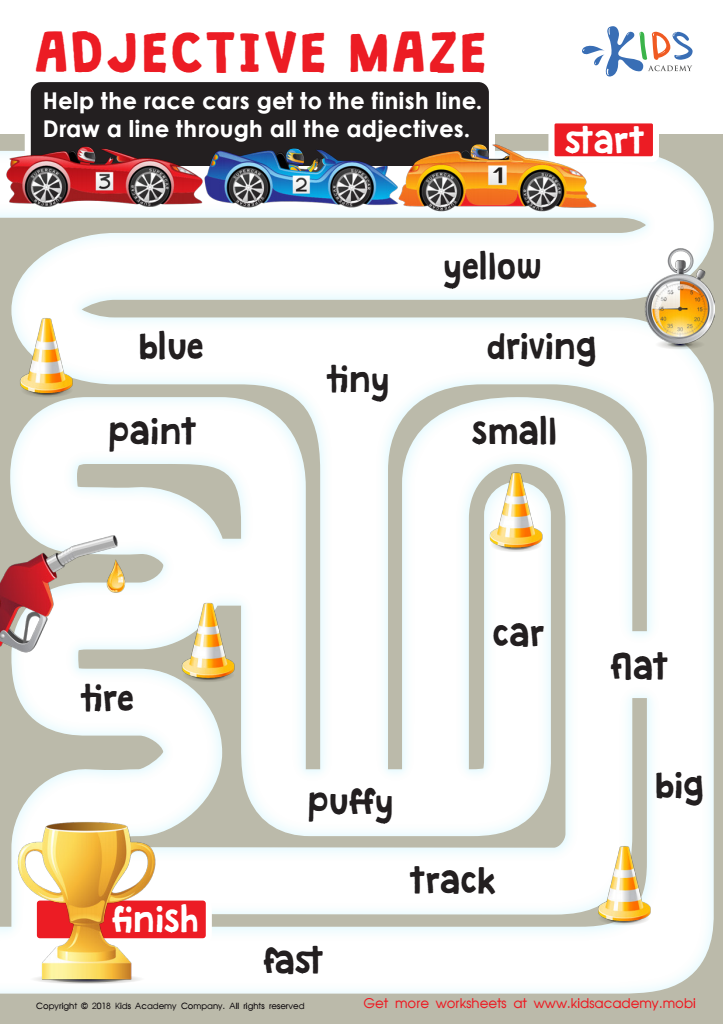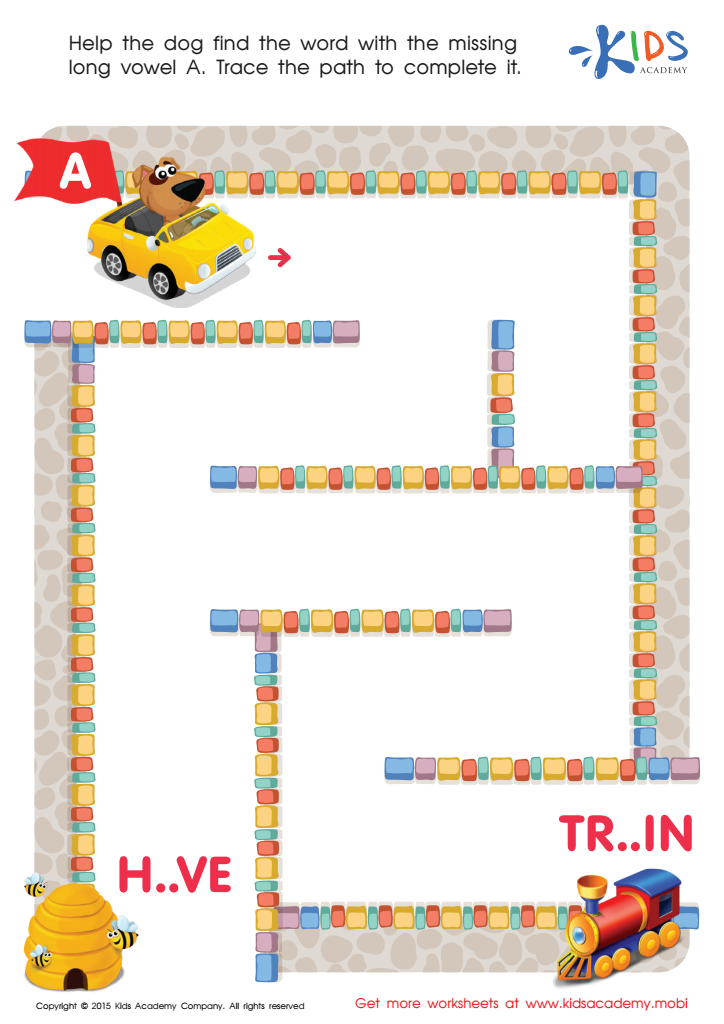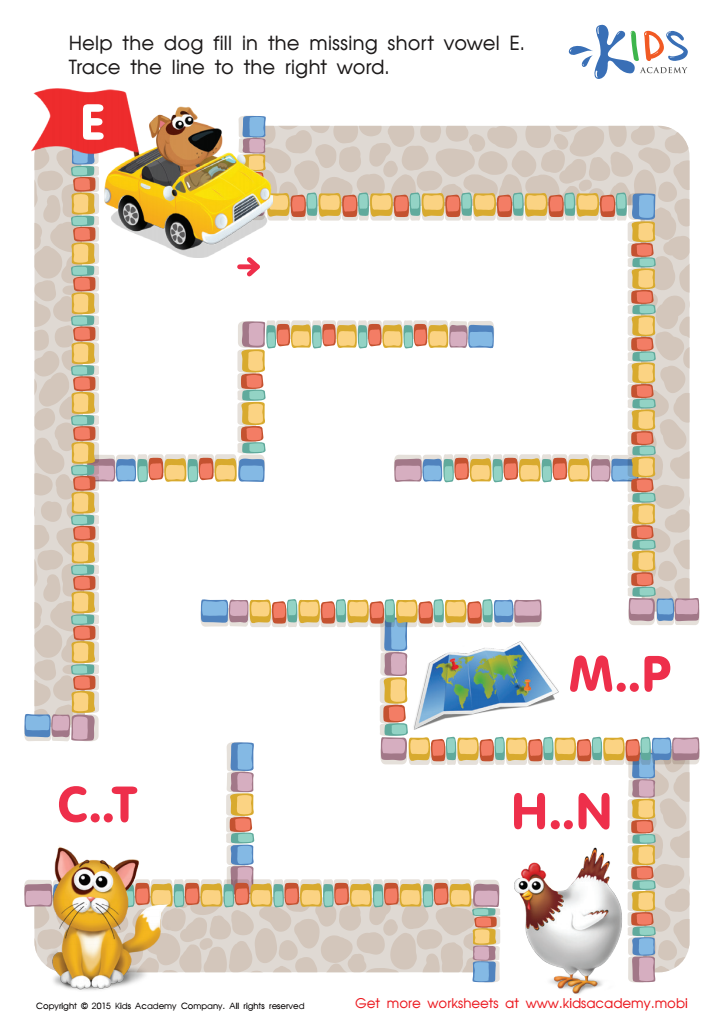Word identification Extra Challenge Worksheets for Ages 5-8
3 filtered results
-
From - To
Boost your child’s literacy with our "Word Identification Extra Challenge Worksheets" designed for ages 5-8. These engaging worksheets offer a fun and interactive way to enhance word recognition skills, supporting early learners as they explore vocabulary in an age-appropriate format. Each worksheet features challenging activities that promote critical thinking and help children build confidence in their reading abilities. Perfect for both classroom and home use, our versatile materials cater to various learning styles, ensuring that every child can thrive. Unlock the power of words with these essential resources that inspire a lifelong love for reading!


Adjective Maze Worksheet


Long Vowel Sound A Worksheet


Short Vowel Sound E Worksheet
Word identification skills are foundational to a child's reading development and overall literacy. The Extra Challenge approach for ages 5-8 addresses the diverse needs of young learners by providing engaging and interactive methods to enhance their ability to recognize and understand words. This is particularly crucial as early reading skills lay the groundwork for later academic success.
Parents and teachers should care about word identification because it directly impacts children's confidence and motivation to read. As children gain proficiency in recognizing words quickly and accurately, they experience less frustration and more enjoyment in reading activities. This positive association fosters a love for literature, critical for ongoing educational engagement.
Additionally, word identification is tied to comprehension. Children who struggle with identifying words may struggle to understand the text's meaning, defaulting their focus to decoding instead of enjoying the story. By employing the Extra Challenge, educators can support different learning paces, allowing for differentiated instruction that meets every child's needs.
Ultimately, strengthening word identification through targeted challenges equips students with essential literacy skills that will benefit them lifelong, promoting academic achievement and a lifelong passion for reading.

 Assign to My Students
Assign to My Students



















